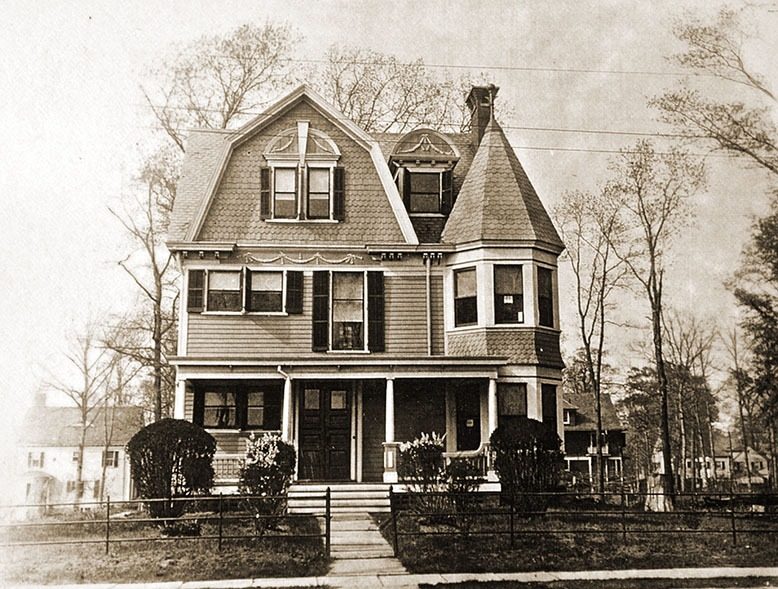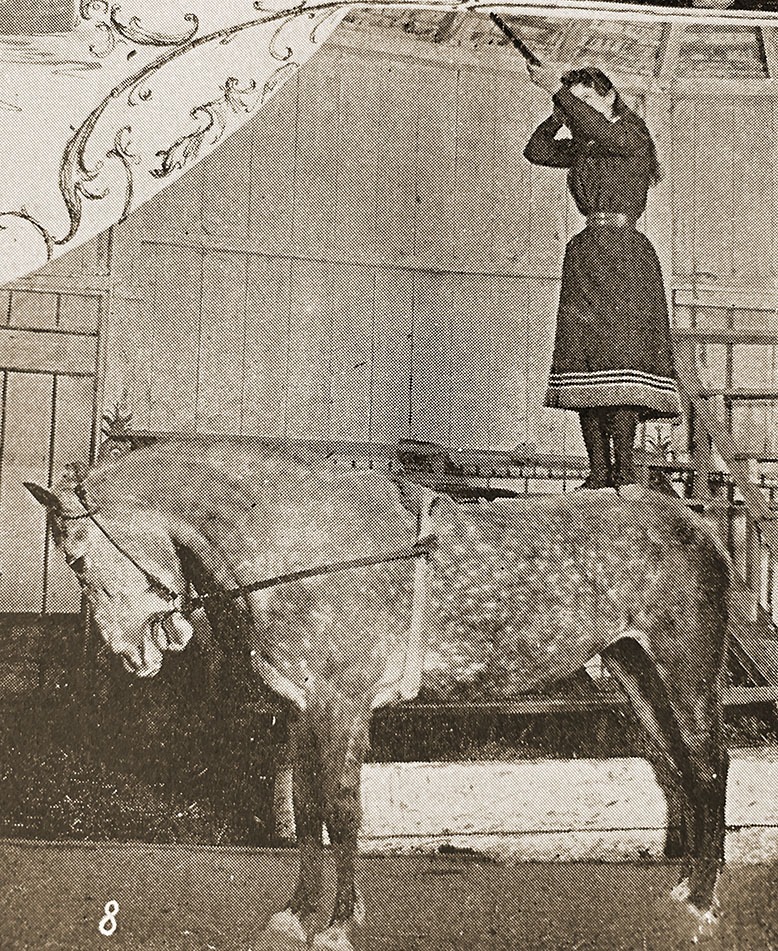
One-hundred and thirty years ago, Annie Oakley, the gun-toting superstar of Buffalo Bill’s Wild West Show, decided to settle in Nutley.
At the height of her international fame, the petite, Ohio-born sharpshooter, whose real name was Phoebe Ann Mosey, and her husband, Frank Butler, moved to the Essex County town when she was 32 years old.
In December 1892, Oakley purchased a lot at 304 Grant Avenue. A year later, the couple moved into a newly built, three-story house. The Victorian residence, with patterned shingles, a front porch and a corner turret, was Oakley’s first permanent home, underscoring how well compensated the champion markswoman had been for her rifle performances (estimated to exceed $3,000 per week in today’s dollars). The couple paid $1,800 for the house.
The Nutley community was an idyllic respite for Oakley after years spent living in tents, hotels and rooming houses on tour. Around town, Oakley, who was nicknamed Little Sure Shot by Sitting Bull, was simply known as Mrs. Butler.
Her first major public appearance in Nutley took place on March 27, 1894, at the Nutley Amateur Circus’s special fundraiser to establish a branch of Clara Barton’s Red Cross League there. The event featured prominent residents as amateur performers, and there was a sold-out crowd that included New York society.
Billed as “America’s Representative Lady Shot,” Oakley was the program’s singular A-list headliner. The New York Daily Tribune reported: “Miss Annie Oakley shot true to the mark… showered the spectators with fragments of glass balls and a deluge of gunpowder soot.”
Months later, Oakley visited Thomas Edison’s motion picture production studio, the Black Maria, located only a few miles away in West Orange. Dressed in a fringe cowgirl costume, she repeatedly fired her Winchester rifle at glass balls thrown in the air by her husband. The performance was preserved by Edison’s innovative kinetograph, an early motion picture device. It even captured the gun smoke and shattered debris.
“Annie Oakley could hit anything with a gun that anyone else could, and then some,” asserted Mark Twain at the time. Oakley achieved the bull’s-eye of success “with her trusty rifle and steady arm,” according to one newspaper, rising to the top of the male-dominated world of competitive shooting. She became a celebrated role model for young women.

In the Nutley community, Annie Oakley was simply known as Mrs. Butler. Photo courtesy of Nutley Historical Society
After 12 years as Nutley residents, the Butlers sold their Grant Avenue house in 1904. A neighbor bought the property for “one dollar and other valuable considerations.” The Butlers returned to the area on several occasions and remained in contact with townspeople. Even though Oakley had moved from the township more than twenty years prior to her death in 1926, she named a Nutley friend as an executor of her estate.
The house that belonged to Annie Oakley was demolished in 1937, yet the Wizard of the Winchester is immortalized in a mural titled The Return of Annie Oakley, by Paul C. Chapman, which has hung above the superintendent’s door in the Nutley Post Office since 1941.
The large oil painting, which was commissioned by the Federal Arts Program of the New Deal, was painted in 1940. It depicts Oakley on a galloping horse, firing her rifle along with five Native Americans, two cowboys shooting pistols, and Buffalo Bill with a raised hat saluting “the best rifle shot in the world.”
